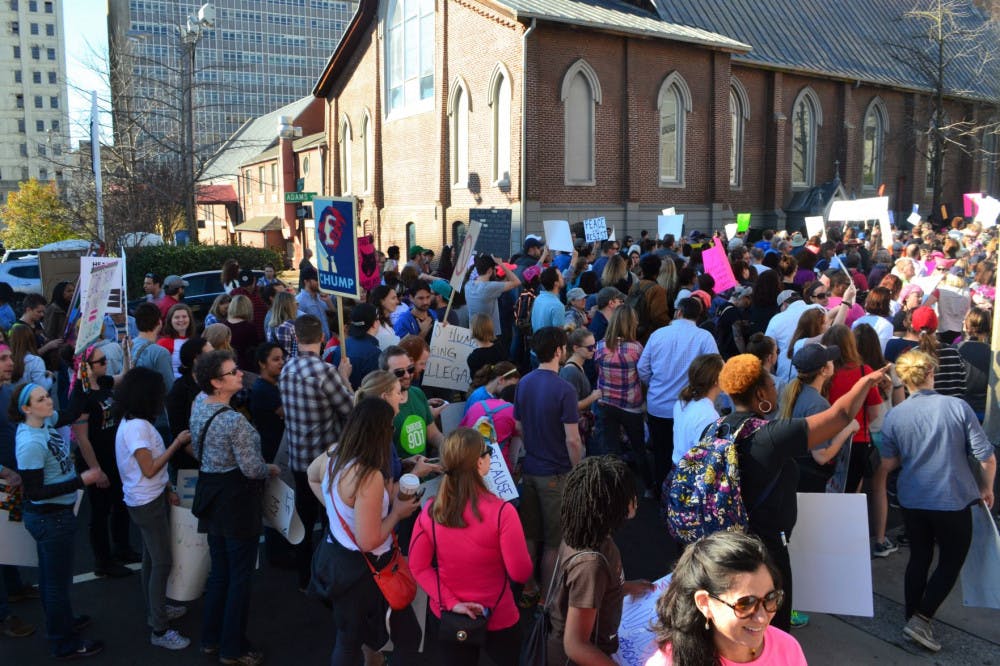Around six million people marched in Washington, D.C. and other cities around the world for the Women’s March on Washington, a movement that spanned across the seven continents Jan. 21.
The Women’s March on Washington was planned following the election of President Donald J. Trump after his derogatory remarks regarding “immigrants of all statuses, Muslims and those of diverse religious faiths, people who identify as LGBTQIA, native people, black and brown people, people with disabilities and survivors of sexual assault,” as stated in the Women’s March on Washington’s mission.
The march was very multi-issued, said Kathy Schultz, associate professor of English and the director of women’s and gender studies at the University of Memphis.
“It was touched off first by the derogatory remarks by Trump to women and the video that surfaced with Billy Bush,” said Schultz, who attended the march in Memphis. “It was definitely a feminist march, but it also had much to do with racial oppression, class and ethnic minorities.”
Schultz said she marched in Memphis to stand up to violence against women.
“I worked in battered women shelters in New York and other places, and to see us electing people who think assaulting women is a joke … is why I marched,” Schultz said.
Memphians gathered in the downtown area for the Memphis Women’s March. Around 9000 men, women and children marched to support equal rights for all. Hailey Coleman, a 20-year-old social work sophomore at the U of M from Marion, Arkansas who attended the march, said she has never felt more empowered.
“I’ve been a feminist for as long as I can remember, but it is especially important now in this political period with rights being threatened,” Coleman said. “I wanted to march with solidarity with women of color, LGBTQ women and women who feel like their voices aren’t heard.”
The march started in Washington, D.C. and spread to 673 sister marches around the world with 4,834,000 total marchers, as reported by the Women’s March on Washington organization. In Washington, D.C., there were around 470,000 marchers, and over 40 speakers including Cecile Richards, the president of Planned Parenthood Federation of America, Scarlett Johansson, an actress, and Sybrina Fulton, the mother of Trayvon Martin.
Michael Duke, associate professor of anthropology at the U of M, said he marched to support the movement of women to stand up to the administration.
“Every indication seems to be trying to remove women’s rights, particularly reproductive rights,” Duke said.
The march did not seem to be stemmed from anger; it seemed to come more from a place of outreach to people who might feel like they are alone, Duke said.
“There was an assumption that it would do okay but not that it would have millions of people around the world marching,” Duke said. “I think it’s partly because of fear of what’s coming down the road.”
The show of support for women’s rights was profound, Duke said.
“Those rights are always fragile, and we always have to constantly safeguard against them slipping backwards,” Duke said. “On one hand, it’s very depressing, but on the other, I’m energized that there are so many people who are willing to stick their necks out to make sure that values the nation was built on are continued.”
Protesters gather in downtown Memphis to advocate for women's rights. The marchers joined a nationwide protest Jan. 21.




